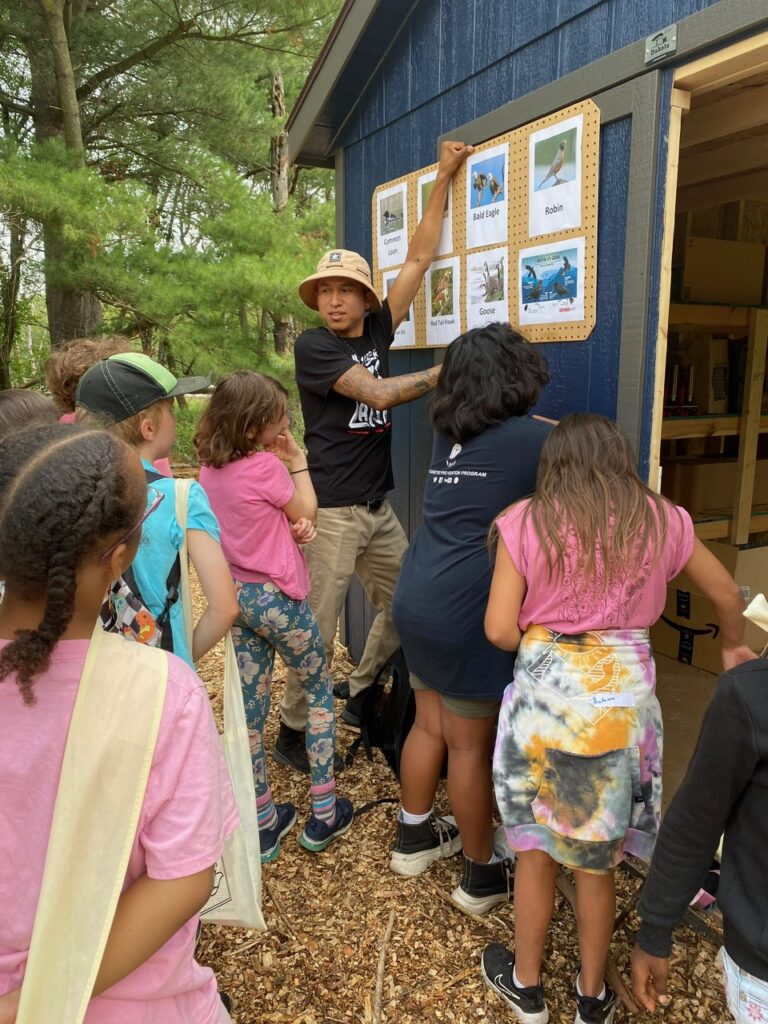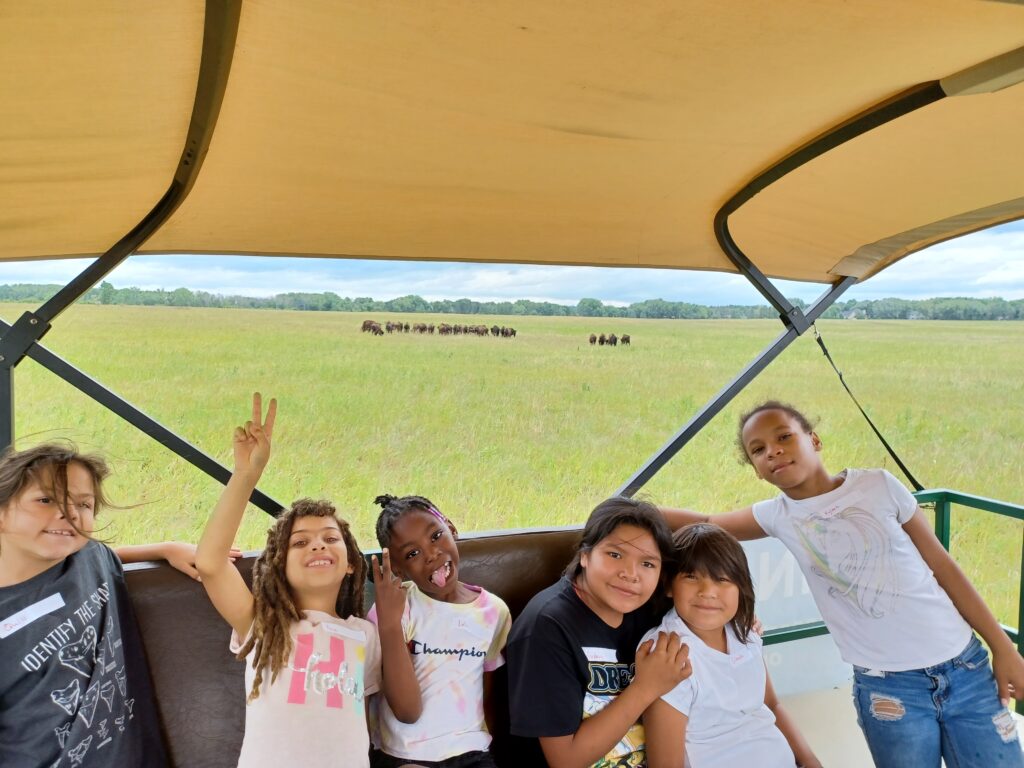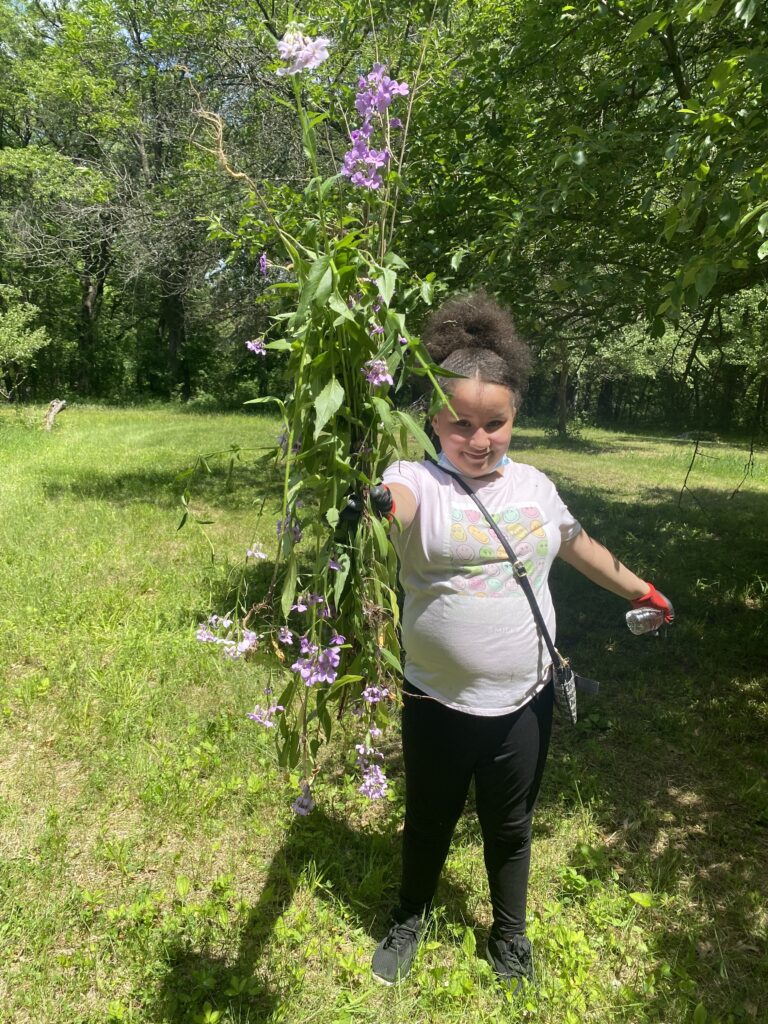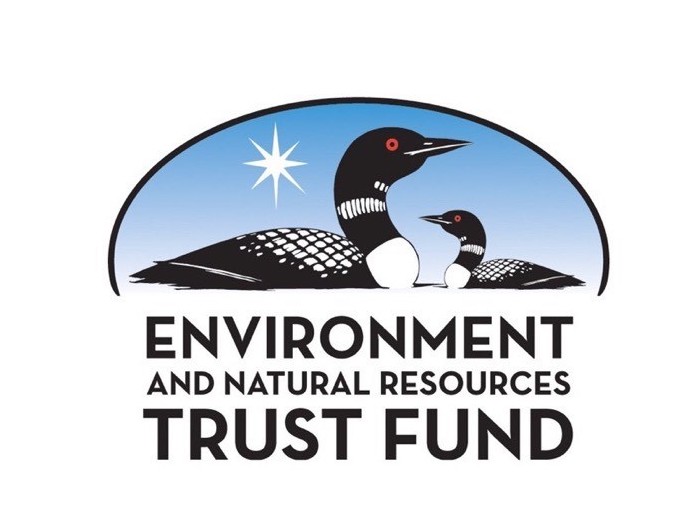How New Funding Could Expand a Key Partnership
On a sunny day in June, a group of elementary students visited a protected woodland parcel at Belwin Conservancy. Led by Educator Ozuya Crow, the students participated in a bird count activity, all while learning traditional Lakota stories of prominent species throughout Minnesota, such as the bald eagle, robin, and red-tail hawk.
This was one of many educational trips students at Anishinabe Academy, a preK-5th Minneapolis Public School focused on Dakota and Ojibwe culture and language, have taken to Belwin as part of an ongoing partnership since 2018.

This partnership provides students and educators with 19 acres of prairie, wetland, and woodland edge for outdoor environmental education, enhanced with Traditional Ecological Knowledge (TEK).
The partnership first received support in 2021 from the Legislative-Citizen Commission on Minnesota Resources (LCCMR), which provides annual recommendations to the Minnesota Legislature on how to allocate proceeds from the state’s Environment and Natural Resources Trust Fund. In July, LCCMR recommended funding for the second phase of this project.
Already, the partnership has connected many Anishinabe Academy students and their families to experts and elders teaching TEK firsthand at Belwin, assisting with active restoration by removing buckthorn, pulling invasive plant species, and taking soil samples to prepare for a traditional garden.

Students have also received education from community members. This year, Elder Kevin Smokyday taught about the bison as an ecological and cultural figure. In addition, Elder Hope Flanagan, Community Outreach and Culture Teacher at Dream of Wild Health, shared plant identification knowledge and traditional Ojibwe stories with students.
Parents and faculty have been enthusiastic about the partnership as it allows students access to traditional knowledge taught outdoors, which many Indigenous people have been historically denied in America.
“This partnership has been powerful in bringing together our students, staff and families into the beautiful outdoor space to learn and engage in land restoration,” says Laura Sullivan, Administration Principal at Anishinabe Academy. “As Native American people we believe that we are a part of the land and our job is to take care of our plant, animal and water relatives in a good way.”

But there is still work to be done. With additional funding, the partnership can expand its scope to include other Indigenous-led organizations and partner schools, as well as alumni of Anishinabe Academy, who could then act as mentors to younger students.
“This expansion will allow us to honor the interconnectedness of the Urban Indigenous community in Minneapolis as we incorporate more people in this work,” said Hannah Smith of Belwin, Program Coordinator for the Anishinabe Academy partnership.
The future is bright for this program and Belwin looks forward to seeing it come to fruition as it develops.
Funding for this project was provided by the Minnesota Environment and Natural Resources Trust Fund as recommended by the Legislative-Citizen Commission on Minnesota Resources (LCCMR).
Please thank your representative for making this support possible.

Funding for this project was provided by the Minnesota Environment and Natural Resources Trust Fund as recommended by the Legislative-Citizen Commission on Minnesota Resources (LCCMR).